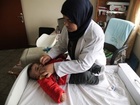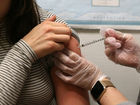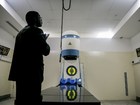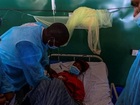Seven medical centers in Gaza have stopped services due to lack of fuel to power generators, the health ministry in the Palestinian enclave said, two days after a hospital took similar steps.
Ashraf al-Qudra, spokesman for the ministry in Hamas-run Gaza, said the health situation had entered an "unprecedented stage" due to an electricity crisis.
 Full Story
Full Story
Twenty-one people have died from Lassa fever in Nigeria this month, the Nigeria Centre for Disease Control said on Wednesday, in the latest outbreak in Africa's most populous nation.
 Full Story
Full Story
U.S. Senate Democrats blocked a controversial measure Monday that would ban and criminalize abortion after 20 weeks of pregnancy, scuttling a longtime priority of conservatives in Congress.
 Full Story
Full Story
People who get the flu may face a six-fold higher risk of heart attack in the week following infection, said a study Wednesday that bolsters the need for widespread vaccinations against the flu.
 Full Story
Full Story
A German male nurse serving a life term for killing six hospital patients with lethal drugs out of "boredom" will face trial for another 97 murders, prosecutors said Monday.
The third trial of Niels Hoegel, 41, accused of being the worst serial killer in German post-war history, is expected to start later this year, a court spokesman in the northern city of Oldenburg told AFP.
 Full Story
Full Story
Uganda's only radiotherapy machine was officially replaced Friday, nearly two years after the previous one broke down, giving hope to cancer patients who had been denied a crucial tool against the disease.
 Full Story
Full Story
A Cypriot court Thursday ordered an Israeli national suspected of being the brains behind an international organ trafficking gang to remain in custody until an extradition process begins on February 5.
 Full Story
Full Story
French police raided the headquarters of dairy giant Lactalis on Wednesday over a baby milk salmonella scare that has sickened dozens of children and led to a major international recall.
 Full Story
Full Story
President Donald Trump will be the patient, not the commander in chief offering comfort, when he visits the Walter Reed military hospital on Friday.
Trump is headed to the medical facility in Bethesda, Maryland, outside Washington, for his first medical check-up as president. But what has been a fairly routine exam for previous officeholders has taken on outsized importance in the age of Trump, given the tone of some of his tweets, comments attributed to some of his close advisers and Trump's recent slurring of words on national TV.
 Full Story
Full Story
In a makeshift bamboo clinic, small children struggle to draw breath through surgical masks, victims of a forgotten but deadly disease that has torn through the teeming Rohingya refugee camps in Bangladesh.
 Full Story
Full Story



